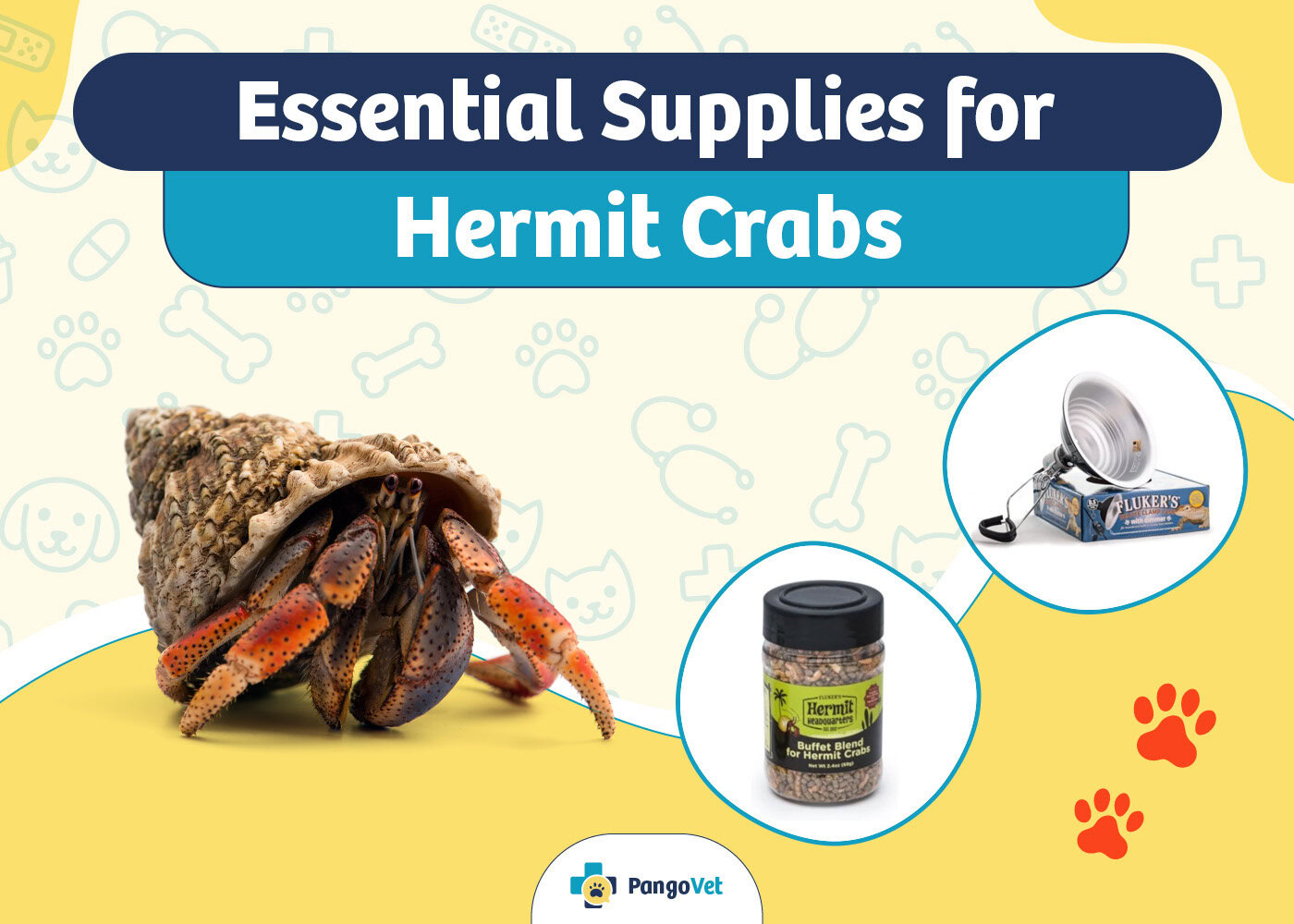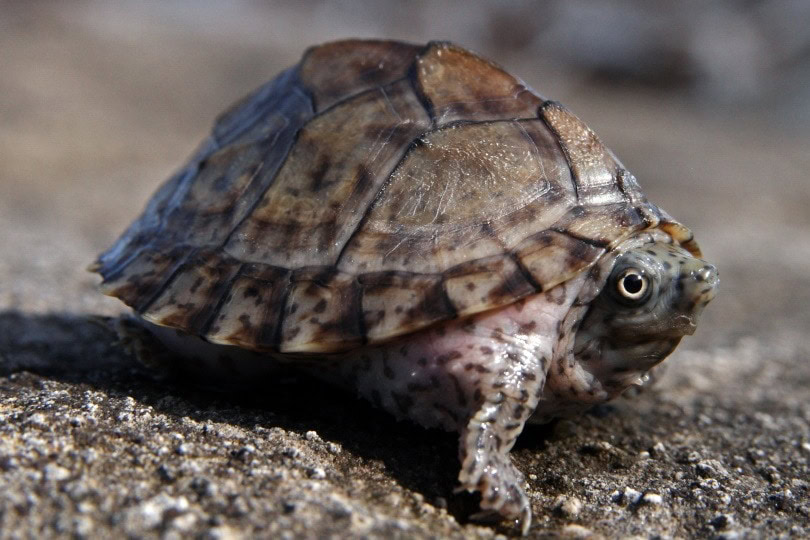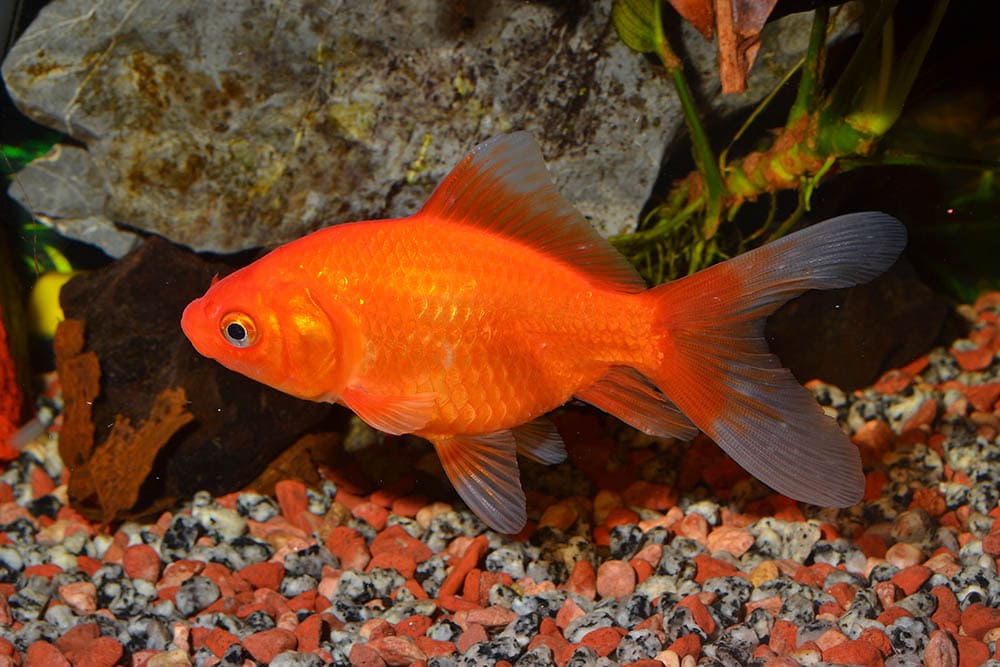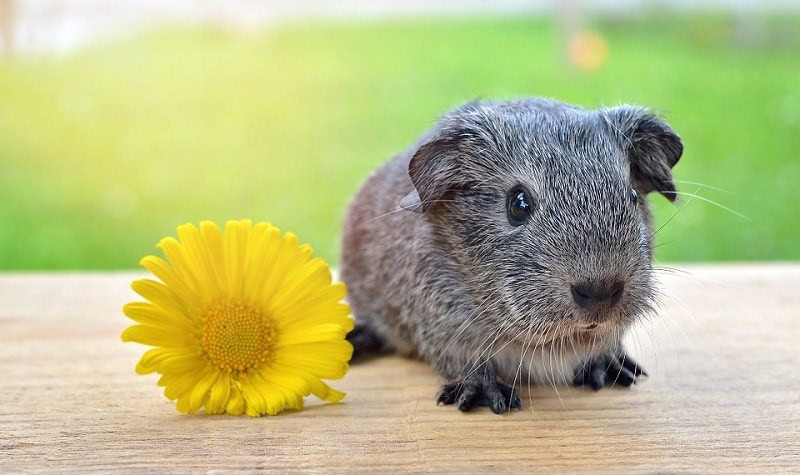Click to Skip Ahead
Hermit crabs are one of the most low-maintenance pets you can own, and they’re ideal for beginner pet owners. However, they have quite the laundry list of supplies you’ll need to stock up on to keep them healthy and comfortable. Most are one-time purchases you can set and forget, while other items are needed for habitat enrichment or environment maintenance.
If you’re lost on where to start, we have you covered. Check out our comprehensive list of what you need to get started as a new hermit crab owner and what we recommend.

The 10 Essential Hermit Crab Supplies
Enclosure Supplies
1. Terrarium/Tank
- Our Choice: OiiBO Glass Reptile Tank Terrarium
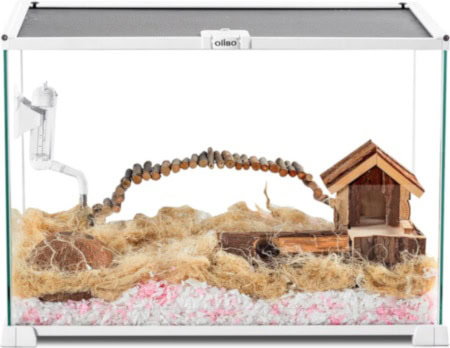
This 15-gallon glass tank from OiiBO is the perfect starter home for any hermit crab, with ample space for water and substrate. The sliding doors are easy to open and close, and the raised front base gives you enough space for layering substrates. The top has a mesh cover with holes that provide ample ventilation without reducing UVB light from external heat sources. Overall, this tank can suit a young hermit crab all the way to maturity and beyond.
2. Substrate
- Our Choice: Frisco Coco Coir Reptile Bedding
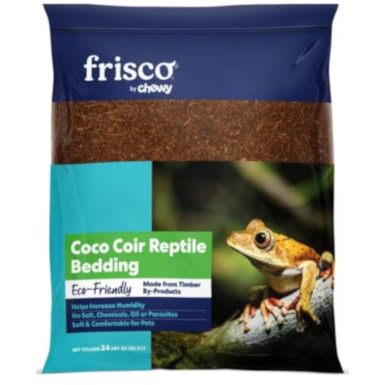
Hermit crabs spend a lot of time burrowing in the substrate of their tank, so it’s important to choose a safe, natural substrate with certain traits. This coco coir from Frisco is perfect. It’s soft, absorbent, porous, and absorbs odors well. Unlike other substrates, it also produces nearly no excess dust.
For drainage and extra airflow, we recommend mixing in coarse sand or peat moss. Your hermit crab produces a surprising amount of waste, so you’ll need to refresh the tank with fresh substrate. As a rule of thumb, we suggest 3 inches of substrate to give your crab enough space.
3. Food/Water Dishes
- Our Choice: Zoo Med Repti Rock Water Reptile Bowl
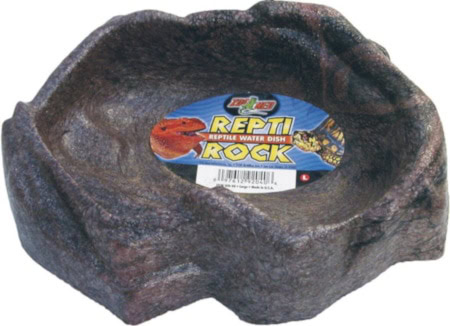
Made for reptiles but great for hermit crabs, Zoo Med Repti Rock Water Reptile Bowl offers your hermit crab a wide, shallow bowl to soak in. We like that the dish has a gently sloping path for easy access, but it’s also nonporous and doesn’t grow bacteria or mold. It’s right at home in any natural hermit crab habitat and practically indestructible. Consider buying two and using one as a food dish!
4. Complete & Balanced Food
- Our Choice: Fluker’s Buffet Blend Hermit Crab Food
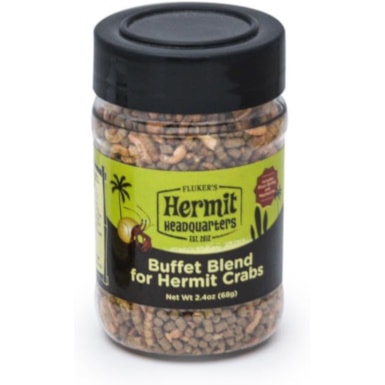
Hermit crabs aren’t picky eaters; they eat small bugs, invertebrates, small fish, and plant matter, including veggies and fruit. In captivity, we feed them a complete, balanced pellet diet like Fluker’s Buffet Blend. It contains a protein-rich blend of mealworms and river shrimp, supporting general health and encouraging more activity and exoskeletal growth.
We recommend supplementing with carrots, apples, lettuce, and peas to give them a mix of healthy nutrients and spice up their diet a bit.

Enrichment Supplies
5. Coral/Driftwood
- Our Choice: GloFish Driftwood Aquarium Ornament
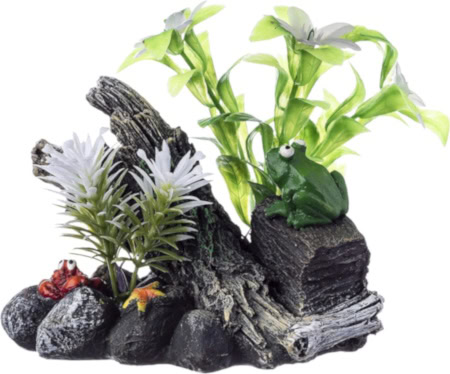
Hermit crabs crave natural scenery that imitates their natural habitat, like driftwood and coral fixtures. This beautiful faux driftwood decoration adds a lively touch to your crab’s tank, offering places to climb and hide. Under blacklight and blue LEDs, it’ll change colors, too. Don’t stop with just one, though. Check out the other natural coral or driftwood decor to populate your crab’s habitat and make them feel more at home.
6. Reef Salt
- Our Choice: Instant Ocean Reef Salt for Aquariums
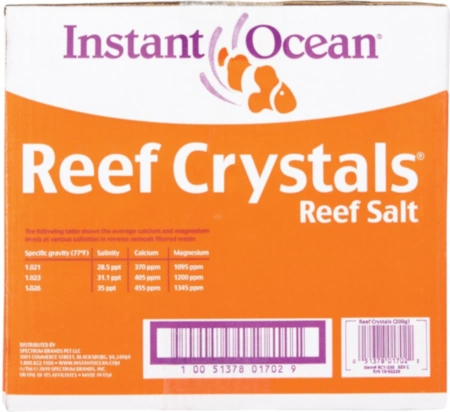
Freshwater hermit crabs don’t need it, but saltwater crabs need a healthy mix that resembles the saltwater of their natural habitat. These calcium-rich reef salt crystals work perfectly. They contain a mix of nutrients like nitrates that support coral and invertebrates if you want to make a marine environment in the tank.
7. Sea Sponge
- Our Choice: Zoo Med Hermit Crab Sea Sponge
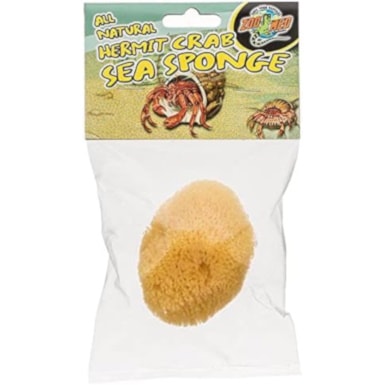
Sea sponges are invaluable for controlling ambient humidity in your tank but are also safety devices for young crabs. They can struggle with entering and exiting their water bowls, and the sponges provide stepping stones to more freely access their water. Your crab will also benefit from the nutrients they gain by eating it, but make sure to replace the sponges before they start growing mold or algae.

Maintenance Supplies
8. Hygrometer/Thermometer
- Our Choice: Fluker’s Digital Thermo-Hygrometer
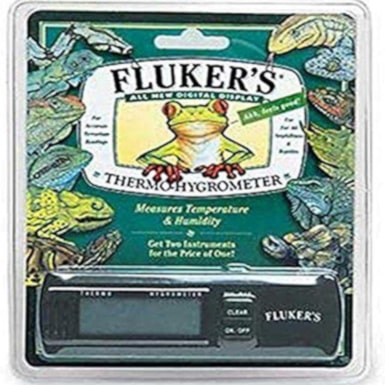
Rather than buying them separately, invest in a hygrometer/thermometer combo to do both critical jobs. This unobtrusive digital monitor displays the tank’s temperature and humidity at all times so you can ensure your hermit crab stays comfortable. It’s nearly waterproof, too, so you don’t have to worry about damaging it when you notice the humidity is low and mist the habitat.
9. Under-Tank Heating
- Our Choice: Zoo Med ReptiTherm Under Tank Heater
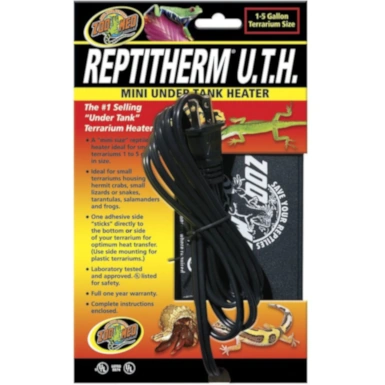
Hermit crabs prefer moderate warmth, around 70 to 80 degrees Fahrenheit, and cooler climates will need supplemental heating like this under-tank heater from Zoo-Med. You’ll plug it in, stick the adhesive side of the heating pad on the underside of your tank, and monitor your temperature accordingly. Generally, you don’t need the under-tank heater on at all hours. It works best as a supplemental measure and a regular low-intensity light cycle.
10. Lighting
- Our Choice: Fluker’s Clamp Lamp With Dimmer
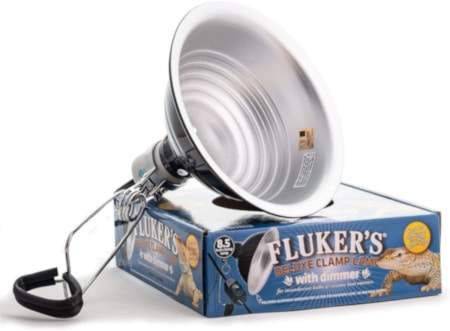
Hermit crabs can survive in all types of light conditions and even total darkness, but for optimal health, they thrive with 10–12 hours of low-intensity LED light. This simple and intuitive clamp lamp fills that niche perfectly. Just clamp it onto the side of your terrarium and adjust the light level with the integrated dimmer switch. Hermit crabs like it on the dimmer side and get stressed if it’s too bright.

Final Thoughts
Hermit crabs take a bit of money and time upfront to set up the perfect habitat, but it’s well worth watching their fascinating behavior in action on a daily basis. The OiiBO Glass Reptile Tank Terrarium gives your crab room to explore and relax, while the Frisco Coco Coir Reptile Bedding is our favorite substrate. You can’t go wrong with the other supplies, so stock up today and get started!
Featured Image Credit: Paul Tessier, Shutterstock
